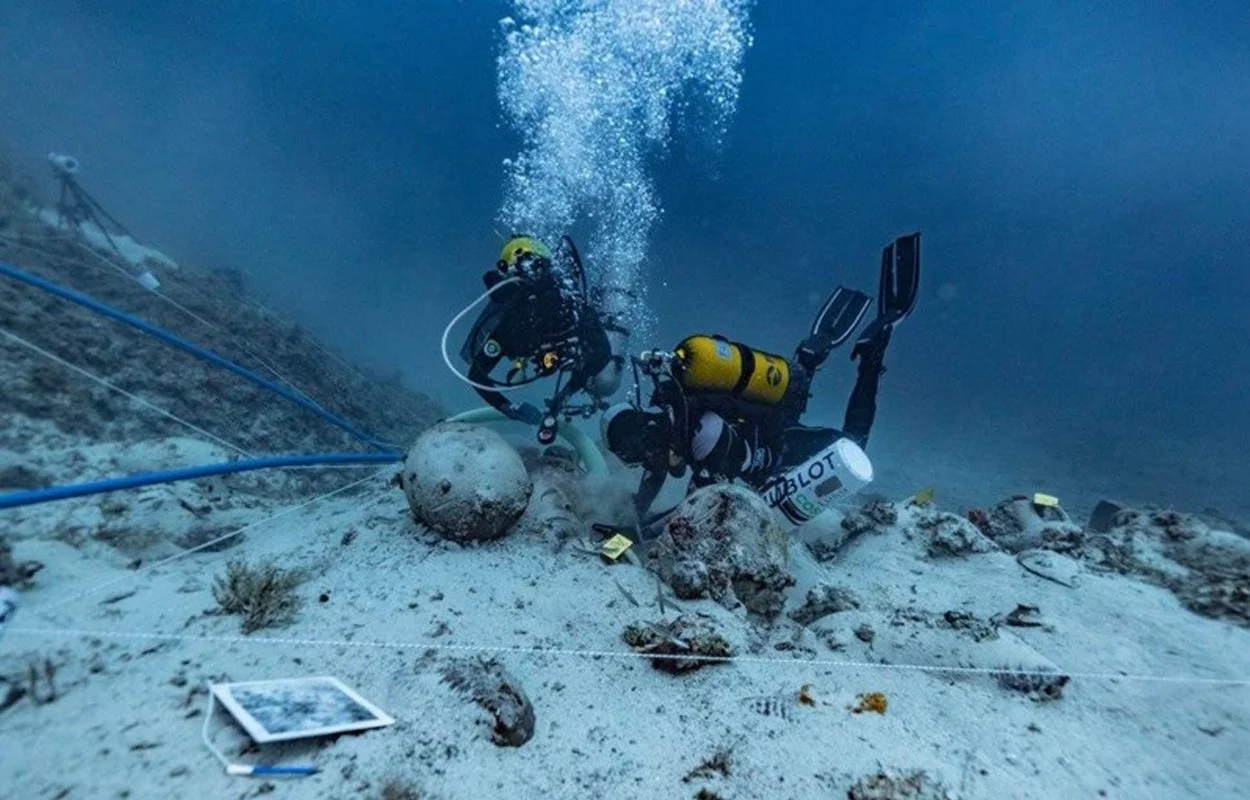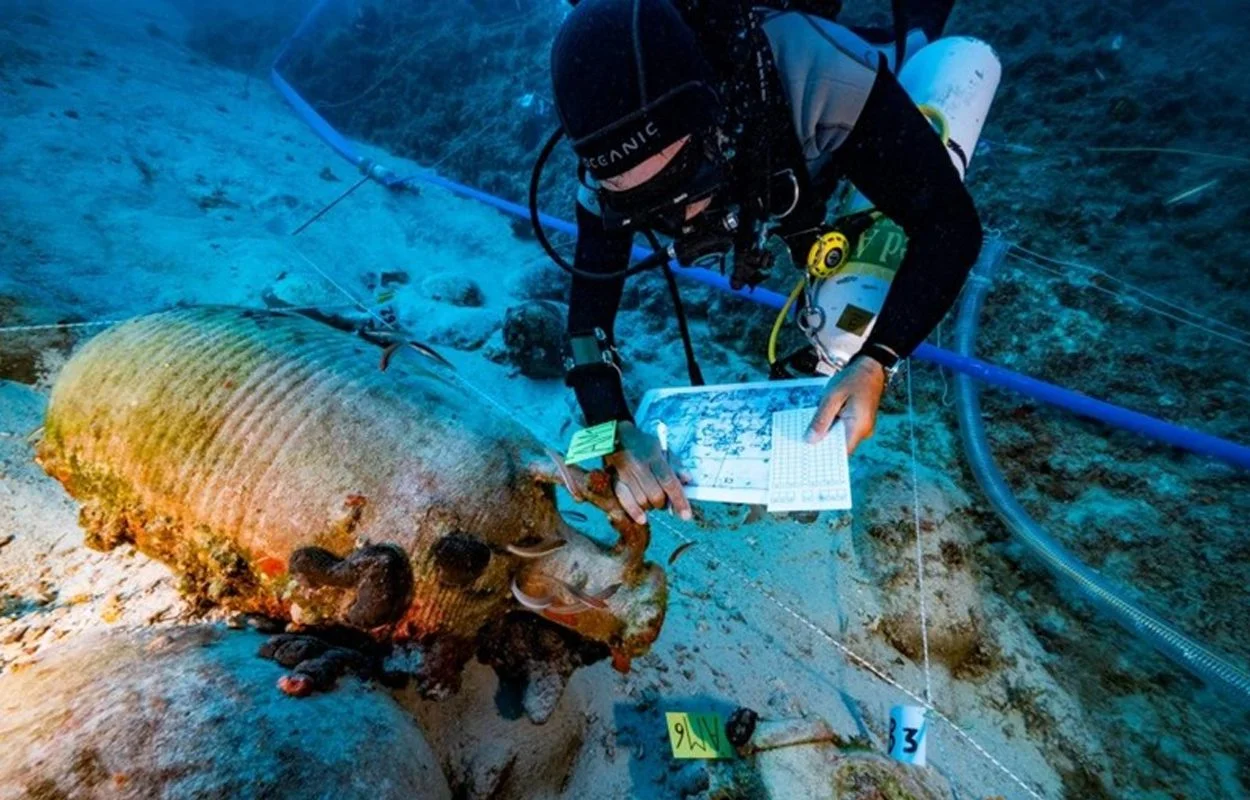Underwater archaeologists have excavated a Byzantine shipwreck near the Greek island of Samos in the East Aegean.
The shipwreck, one of 58 identified in the Fourni islands archipelago as part of the framework of the EU’s Interreg VA Greece-Cyprus 2014-2020 program, was selected for further study by the Culture Ministry of Greece due to the wrecks relatively high level of preservation.
The archipelago is famous for being a hub of the Ancient World and a major route for the transportation of goods across the Mediterranean.
The wreck is located off the Fygos promontory (Aspros Kavos) at a depth of 43-48 metres and dates from between AD 480 to AD 520. The shipwreck’s chronology range places it within the rule of Anastasius I (491-518 AD), a Byzantine Emperor whose reign was characterised by reforms to reinvigorate the monetary economy and leaving the empire with a stable government.

Excavations were led by underwater archaeologist Giorgos Koutsouflakis along with a team of specialist divers, who carried out 292 individual dives amounting to nearly 220 hours of underwater work.
After clearing sand from the surface and opening a trial trench, the team found six types of amphorae from Crimea and Heraclea Pontica on the Black Sea coast, and multiple pieces of ceramic tableware from Phocaea in NW Asia Minor.
Header Image Credit : AMNA





